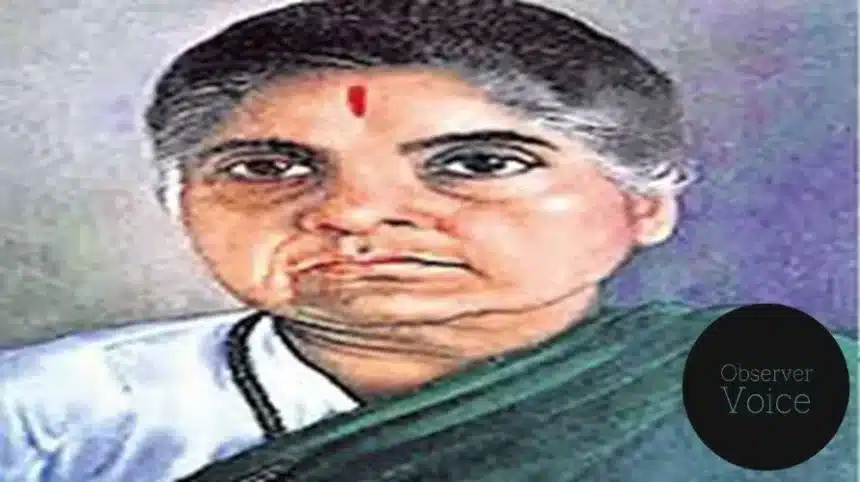Durgabai Deshmukh (15 July 1909 – 9 May 1981), an Indian freedom fighter, lawyer, social worker, and politician.
She was a public activist for women’s emanicipation and the founder of Andhra Mahila Sabha. She was also the founder chairperson of the central social welfare board.
Early Life
Durgabai Deshmukh was born on 15 July 1909, in Andhra Pradesh, India.
She was involved in Indian politics since she was a kid. When she was 12, she quit school to protest English-medium education. Later she started a Hindi school for girls in Rajamundry called Balika Hindi Paathshala.
She volunteered and was assigned to run a Khadi exhibition at the Indian National Congress’s 1923 conference in Kakinada. Her job was to make sure people without tickets didn’t get in. Her duty was fulfilled honestly, even stopping Jawaharlal Nehru from entering.
Her fight for freedom from the British Raj was inspired by Mahatma Gandhi. As a satyagrahi, she didn’t wear jewelry or cosmetics. During the Civil Disobedience Movement, she was an active member of the Salt Satyagraha led by Gandhi. She helped organize women satyagrahis. As a result, she was jailed three times between 1930 and 1933.
She continued her studies after she got out of prison. She finished her B.A. and her M.A. in political science in the 1930s from Andhra University. Madras University awarded her a law degree in 1942, and she started practicing at the Madras High Court.
She was a member of the Constituent Assembly. Many social welfare laws were passed because of her. In the Planning Commission, she was a member. She shaped a national social welfare policy in that role. As a result of the policy, a Central Social Welfare Board was established in 1953. In her role as first chairwoman, she mobilized lots of volunteers to help the Board’s programs, which aimed to educate, train, and rehabilitate needy women, kids, and handicapped people. In 1958, the Indian government created the National Council on Women’s Education, and she was its first chairperson.
The Department of Women Studies at Andhra University, Visakhapatnam has been named after her.
Awards
She was awarded the Padma Bhushan, the third highest civilian award of India.
Death
She died on 9 May 1981, in Andhra Pradesh, India.
Read More: 16 July in Indian and World History
Read Also: 14 July: Shiv Nadar an Indian billionaire

